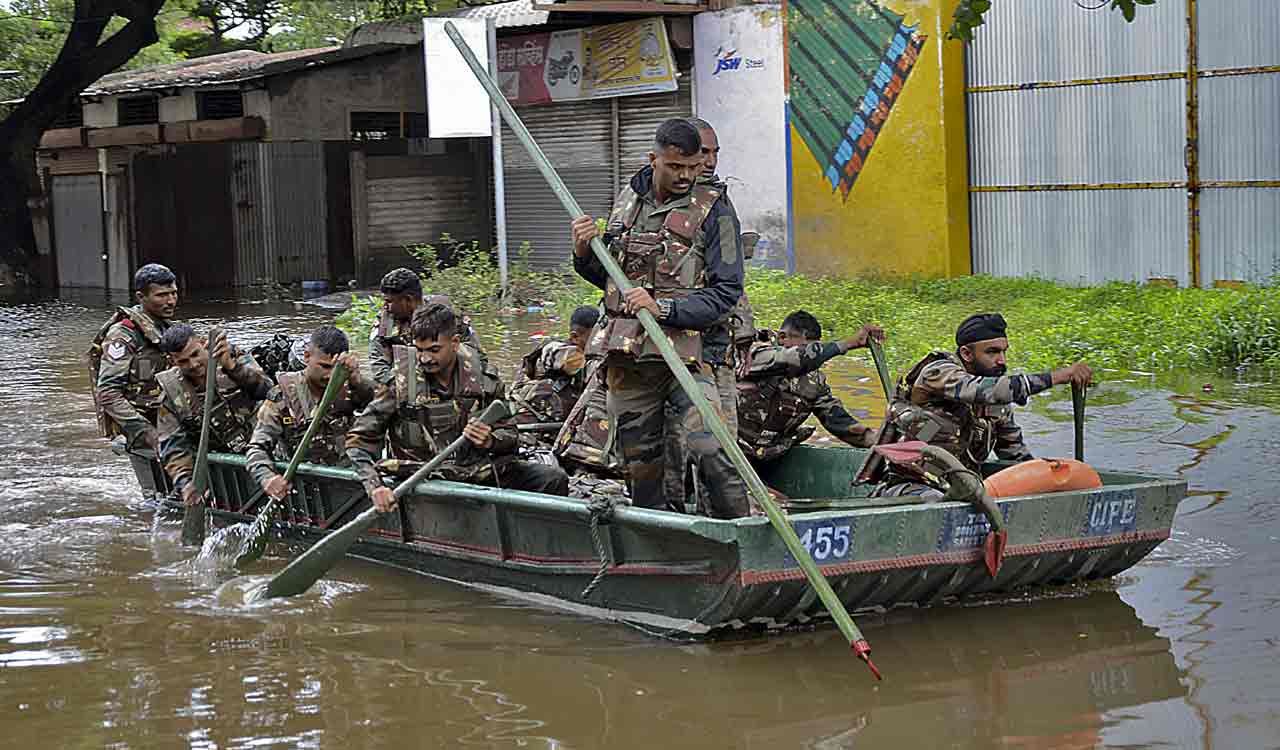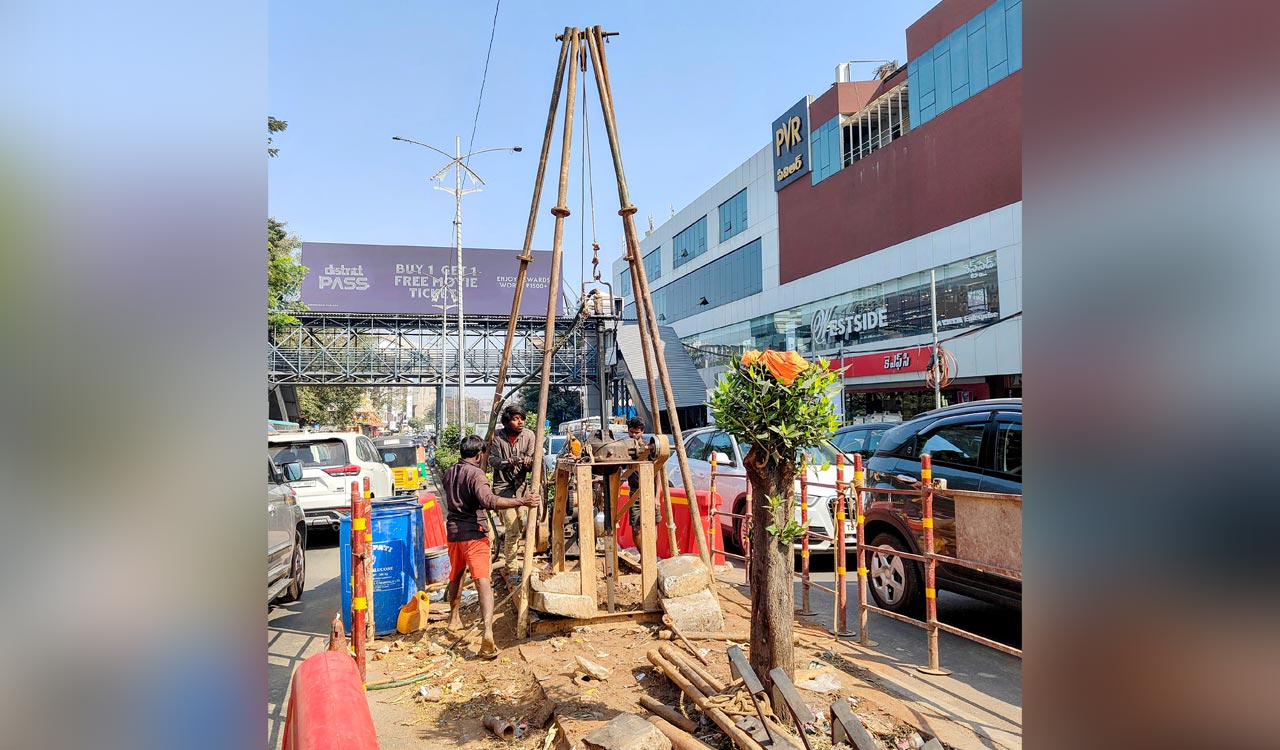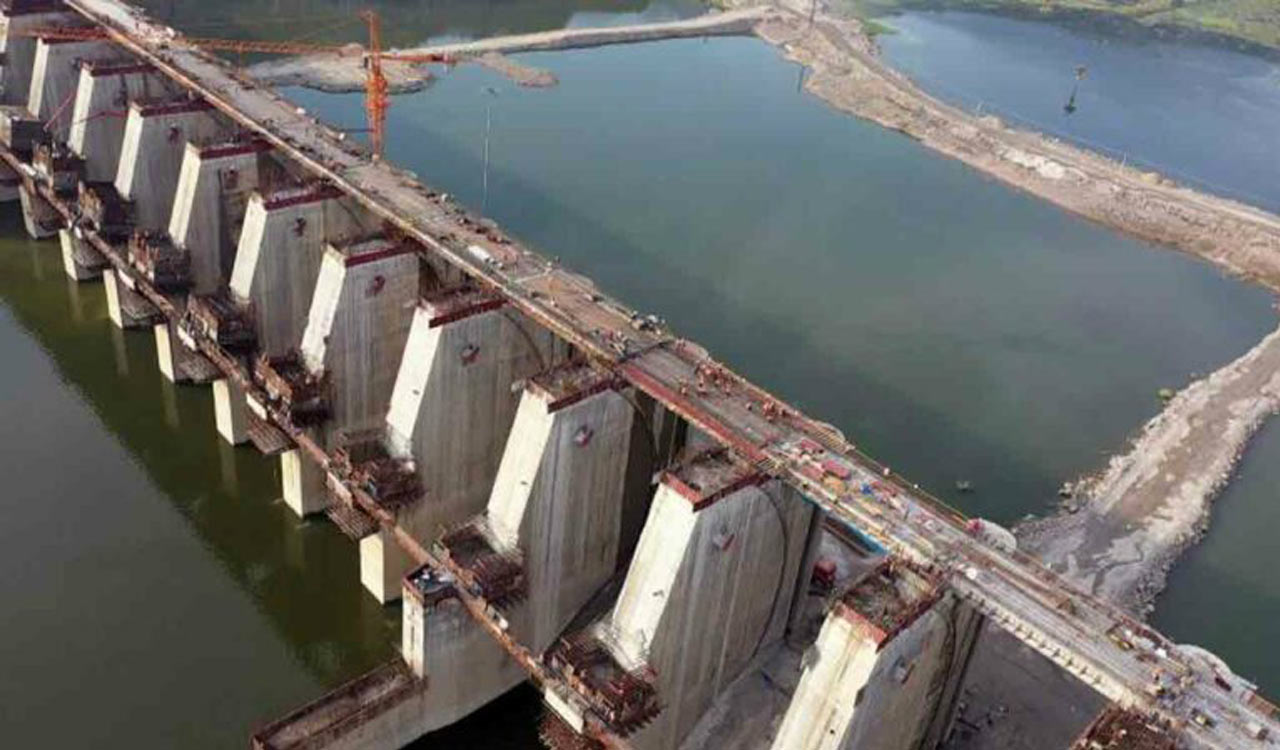Centre plans to make floodplain zoning law mandatory, but only 4 States comply
Legislation provides guidelines for flood zoning authorities, surveys, delineation of floodplain areas, restrictions on floodplain use, provisions for compensation and removal of obstructions

New Delhi: With only four States complying despite repeated reminders, the Centre is contemplating making it mandatory for States to enact floodplain zoning legislation if they want to access central flood management funds, officials have said.
The four States that have enacted such legislations are: Manipur, Rajasthan, Uttarakhand and the erstwhile Jammu & Kashmir.
A senior official said the Ministry of Jal Shakti has been in continuous communication with State governments, urging them to notify the Flood Plain Zoning Act and demarcate flood zones. Recently, the Central Water Commission updated the Model Act, and the Ministry plans to initiate another round of consultations with States, the official said.
The official said the Ministry has proposed making the enactment of the Floodplain Zoning Act a prerequisite for States to access funds under the Flood Management and Border Areas Programme (FMBAP).
“We are going for a Cabinet approval for the next phase of the Flood Management and Border Areas Programme. For that, now the condition for any State to access resources under the FMBAP will be that the state must have enacted the Flood Plain Zoning Act. So, you will not get money if you have not enacted the Flood Plain Zoning Act,” the official said.
The official said the Ministry has made several other efforts to address these issues. “In May 2022, the Secretary of the Department of Water Resources, River Development & Ganga Rejuvenation wrote to State Chief Secretaries, urging them to enact appropriate legislation. In a meeting in January 2023, the Secretary emphasised the importance of floodplain zoning for comprehensive flood management and minimising flood damage,” the official added.
“The Ministry of Jal Shakti has been persistently urging States to take action. However, the progress remains limited to a few States. Water management, including flood management, is a state subject under the Constitution. States need to take proactive measures in this regard,” another official said.
The legislation provided guidelines for flood zoning authorities, surveys, delineation of floodplain areas, notification of floodplain limits, restrictions on floodplain use, and provisions for compensation and removal of obstructions.
Despite these comprehensive guidelines, many States are yet to take significant steps towards legislation and enforcement, the official said. The official said even the States that have enforced the law are yet to fully implement it.
“Manipur enacted floodplain zoning legislation in 1978, but the demarcation of flood zones is yet to be done. Rajasthan also enacted legislation in the State; however, enforcement thereof is yet to be done,” the official said.
Uttarakhand is one State which has enacted the law as well as undertaken some groundwork by demarcating different segments where development will take place only in regulated matter or will not take place at all.
“So, this way they have done. Uttarakhand is the only State. Then, based on some an NGT (National Green Tribunal) order, even Uttar Pradesh has done some demarcation on the floodplains,” the official said.
Some States such as Bihar and Uttar Pradesh have informed about difficulties in implementation of such a law due to large-flood affected areas and other states have yet not taken any action for enactment of a legislation, the official said.
Common constraints given by the States are — issue of evacuation of people who are already occupying the floodplains, lack of alternative settlement due to constraints of flood, non-availability of high-resolution Digital Elevation Model (DEM) for flood prone assessment studies and a lack of clarity on proper definition of floodplain.
Related News
-
New Mancherial Municipal Corporation grapples with multiple challenges
-
NGT nod clears way for KBR Park flyovers and underpasses
-
Harish Rao slams Congress govt’s delayed Supreme Court move on Andhra’s Polavaram-Nallamala Sagar link project
-
Telangana reaffirms stand on Godavari–Cauvery link, rejects Andhra’s Polavaram route
-
India condemns Pakistan strikes as US defends anti-terror operations
3 mins ago -
Chasing dreams, raring to go: Telangana IM Dhruva poised for greatness
8 hours ago -
Patna court refuses transit remand for Andhra police in IPS officer case
8 hours ago -
TTD to deploy advanced lab for laddu prasadam quality
8 hours ago -
Sports Briefs: Sports Shooting Conclave in city
8 hours ago -
India unveils first national counter-terrorism policy ‘Prahaar’
8 hours ago -
Supreme Court refuses plea on Tirumala laddu SIT review
8 hours ago -
Jawaharlal Nehru University protest against VC turns violent, student groups clash
8 hours ago




